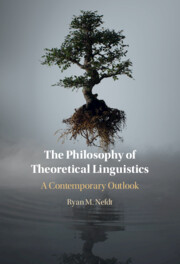Book contents
2 - What Is a Possible Human Language?
Published online by Cambridge University Press: 25 April 2024
Summary
In this chapter, the central philosophical pursuit of theoretical linguistics is recentred around the issue of what makes a language a possibly human or natural one. Thus, instead of discussing the old immovable debates concerning the ontology of language in terms of nominalism, mentalism, and platonism, we move the discussion to modal metaphysics. However, this isn’t an exercise in abstract a priori reasoning. The space of possibilities are deeply constrained by current linguistic theory. Besides proffering a novel conception of language and linguistic possibility, the concepts of ‘naturalness’ in philosophy, ‘learnability’ in generative linguistics, and ‘communication’ in the philosophy of language are discussed. The idea is that linguistic possibility or possible languages, like possible worlds, can be defined in terms of accessibility relations from actual languages based on their learnability, use as communicative devices, and a number of other possible constraints. Lastly, the chapter critiques some influential experimental work in neurolinguistics on the notion of impossible languages, which rely more heavily on generative biolinguistics. These experiments, although interesting, don’t show what they intend to. Linguistic impossibility is best derived from its possibility through the method presented in the chapter.
- Type
- Chapter
- Information
- The Philosophy of Theoretical LinguisticsA Contemporary Outlook, pp. 23 - 49Publisher: Cambridge University PressPrint publication year: 2024



